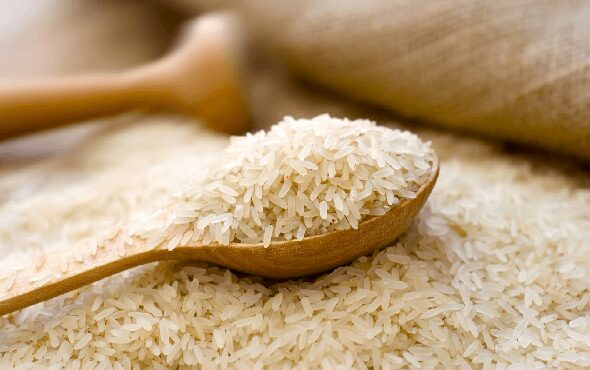The price of locally manufactured rice which is now between N17,000-N23,000 per bag following the recent border closure may not come down soon contrary to the position of the Governor of Central Bank, Godwin Emefiele, according to economists who spoke to THE WHISTLER.
The CBN governor had on Tuesday during the Monetary Policy Committee (MPC) meeting said the increase in the prices of rice and other food commodities is reactionary and that prices would fall in the short run.
Advertisement
But some economists who spoke with this website said the price increase occasioned by the border closure may not fall unless domestic supply is increased to meet demand.
Aminu Usman, an economist and Dean, Faculty of Social Science, Kaduna State University, agreed with the CBN stance that the prices of rice and other food items were reactionary to shortages in supply as a result of the border closure.
However, Usman believes the reactionary price increase may be sustained if supply is not improved.
“It is reactionary when it comes to the prices of rice and other food items, however it could be sustained or could be on a continuous bases because of shortage in supply linked to ban on importation.”
Advertisement
He stressed that the only condition that can make the prices of those commodities especially rice to fall in the long run is when the supply is adequate enough to meet the excessive demand currently experienced.
According to him, “If domestic supply still cannot meet domestic demand in the long run prices of local commodities will remain screwed upwards.”
Usman went further to say that inflation in the country often starts in response to availability of affected goods as a response to policy, however, the price according to him does not fall back to normal in the long run.
“The problem with inflation in Nigeria is that it usually starts as reactionary, but it tends to be a continuous one, take for instance the government ban on the importation of rice led to the jump in the price of rice; we assume it is a reaction to supply.”
He further blamed the inability of local producers to increase production output as the reason for increase and fluctuations in prices of goods in the local market.
Advertisement
“That is why prices of local varieties are unstable, always experiencing increase- a reaction to the ability of local producers to also meet up market demand.” Usman said.
Speaking in the same vein, Peter Njiforti, a professor of Economics at the Ahmadu Bello University, Zaria also admitted that the local rice market reacted to the border closure, adding that in the short run the policy will have a negative impact based on the shortfall in supply of the affected commodities, especially rice.
He also expressed concern over the inability of local manufacturers to meet up with market demand as it is a vital tool to curb the price inflation in the long run.
“The closure of the border has its pros and cons. In the short run the negative may outweigh the positive and in the long run the positive aspect is likely to outweigh the negative.
“The supply of some of the things needed might not be available, so prices reacted to the shortage, for example the case of local rice.” Njiforti said.
Njiforti stressed that demand for local rice increased because the old stock available and the supplies smuggled through the borders which are sold at very high rate could not meet market demand.
Advertisement
According to him, the increment in the price of local rice is a result of the increased demand of the public, “because the few foreign rice available and the few smuggled into the country are at very high cost, so consumers have no choice than to opt for local rice which is relatively cheaper.”
He added that the border closer is an avenue for local manufacturers, farmers and other stake holders to exploit opportunities for economic expansion.
“This may serve as incentive to agents that are involved in that line of economic activities like rice farmers, processors and the rest.” He said.



